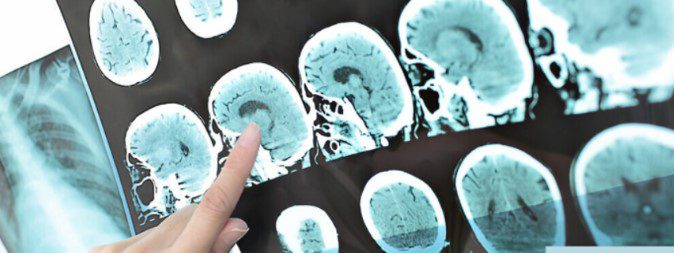
by Stemedix | Aug 7, 2023 | Multiple Sclerosis
What is Multiple Sclerosis?
Multiple Sclerosis (MS) is a chronic and potentially disabling autoimmune disease that affects the central nervous system (CNS). The central nervous system comprises the brain and the spinal cord, which are responsible for transmitting signals between the body and the brain to control various bodily functions.
In MS, the immune system mistakenly attacks the protective covering of nerve fibers, known as myelin, which leads to inflammation and damage to the myelin sheath. This demyelination disrupts the normal transmission of electrical signals along the nerves. Additionally, MS may cause damage to the underlying nerve fibers and, in some cases, result in the formation of scar tissue (sclerosis) at the damaged sites.
The course of multiple sclerosis can be unpredictable, with periods of relapses (exacerbations or flare-ups) followed by periods of remission (partial or complete recovery). Over time, MS may lead to accumulated neurological damage, leading to increasing disability in some individuals.
The cause of multiple sclerosis is not entirely understood, but it is believed to involve a combination of genetic and environmental factors. There is currently no cure for MS, but various disease-modifying therapies and some alternative therapies may help manage the symptoms, reduce the frequency and severity of relapses, and slow the progression of the disease.
What Are Symptoms and Early Signs of Multiple Sclerosis?
Signs and symptoms of Multiple Sclerosis (MS) can vary widely among individuals and may depend on the location and extent of nerve damage. Some common signs that may indicate the possibility of MS include:
Vision Problems: Blurred or double vision, pain during eye movement, or partial loss of vision may occur due to inflammation of the optic nerve.
Numbness and Tingling: Sensations of pins and needles, numbness, or a “prickling” feeling in various parts of the body, such as the face, arms, legs, or trunk.
Muscle Weakness: Weakness in the arms or legs, difficulty lifting or holding objects, and problems with coordination and balance.
Fatigue: Extreme tiredness, often unrelated to physical exertion, and a feeling of exhaustion that can interfere with daily activities.
Balance and Coordination Issues: Difficulty walking steadily, stumbling, or experiencing problems with coordination, which may lead to falls.
Bladder and Bowel Problems: Difficulty controlling urination, frequent urination, urgency to urinate, or constipation.
Cognitive Changes: Problems with memory, attention, concentration, and other aspects of cognitive function.
Pain and Spasms: MS can cause various types of pain, including nerve pain, muscle spasms, and general discomfort.
Emotional Changes: Mood swings, depression, anxiety, or emotional lability (rapid shifts in emotions).
Heat Sensitivity: Some individuals with MS experience worsening symptoms when exposed to heat, such as hot weather or hot baths.
It’s important to note that these symptoms are not exclusive to MS and can be associated with other medical conditions as well. Additionally, the course of MS can be unpredictable, with symptoms varying over time, and some individuals may have mild symptoms, while others may experience more severe effects.
If you notice any of these signs or have concerns about your health, it’s essential to consult a healthcare professional who specializes in diagnosing and treating conditions of the nervous system.
Who Do I See if I Think I Have Symptoms of Multiple Sclerosis?
If you suspect that you have symptoms of Multiple Sclerosis (MS), it’s important to seek medical attention promptly. The first healthcare professional to consult is usually your primary care physician or family doctor. They will listen to your concerns, conduct a thorough medical history, and perform a physical examination to assess your symptoms and rule out other possible causes.
If your doctor finds the symptoms concerning or suspects neurological involvement, they may refer you to a neurologist, who specializes in diagnosing and treating conditions related to the nervous system. The neurologist will conduct a comprehensive neurological examination, which may include tests to assess your reflexes, coordination, balance, strength, and sensory functions. They may also order additional tests, such as magnetic resonance imaging (MRI) of the brain and/or spinal cord, to look for signs of demyelination and other characteristic features of MS.
Based on the results of these evaluations, the neurologist can make a definitive diagnosis and discuss treatment options if MS is confirmed. Early diagnosis is essential to start appropriate treatment and symptom management as soon as possible.
Remember that MS symptoms can mimic those of other conditions, and diagnosing MS can be complex. Therefore, it’s crucial to collaborate closely with healthcare professionals and be open about any symptoms you may be experiencing. They will work together to ensure you receive the most accurate diagnosis and develop a suitable treatment plan tailored to your needs.
What Are Treatment Options for Multiple Sclerosis?
The treatment of Multiple Sclerosis (MS) aims to manage symptoms, slow the progression of the disease, reduce the frequency and severity of relapses, and improve the overall quality of life. The choice of treatment depends on the type of MS, the severity of symptoms, and the individual’s response to therapy. Treatment options for MS can be broadly categorized into the following:
Disease-Modifying Therapies (DMTs): These medications are designed to modify the course of MS by reducing inflammation, decreasing the frequency and severity of relapses, and slowing the progression of disability.
Symptomatic Treatments: These treatments focus on managing specific MS symptoms to improve daily functioning and quality of life. For example, corticosteroids, muscle relaxants, physical, rehabilitation, and occupational therapies, pain medications, lifestyle and diet management.
Regenerative Medicine for Multiple Sclerosis
Regenerative medicine, also known as stem cell therapy, holds promise as a potential future approach for the treatment of Multiple Sclerosis (MS). The field of regenerative medicine aims to repair, replace, or regenerate damaged tissues and organs to restore their normal function. In the context of MS, the focus is on regenerating or repairing the damaged myelin and nerve cells in the central nervous system (CNS).
Mesenchymal stem cells (MSCs) have shown promise as a potential therapeutic approach for Multiple Sclerosis (MS) due to their immunomodulatory and regenerative properties. These stem cells can be isolated from various tissues, such as bone marrow, adipose tissue, and umbilical cord tissue, and they possess the ability to differentiate into multiple cell types, including bone, cartilage, and fat cells.
When MSCs are used as a potential treatment for MS, their mechanisms of action may include the following:
- Immunomodulation: MSCs have the unique ability to suppress excessive immune responses and regulate the immune system. In MS, the immune system mistakenly attacks the myelin sheath, leading to inflammation and nerve damage. MSCs can help reduce this autoimmune response and limit inflammation by releasing anti-inflammatory molecules and interacting with immune cells.
- Anti-Inflammatory Effects: MSCs release a variety of anti-inflammatory factors, such as interleukin-10 (IL-10) and transforming growth factor-beta (TGF-β), which can help reduce the inflammation around the damaged nerves.
- Promotion of Myelin Repair: MSCs can support the repair and regeneration of damaged myelin sheaths in the CNS. They release growth factors and other molecules that stimulate the activation and differentiation of cells that promote myelin repair.
- Neuroprotection: MSCs have been found to have neuroprotective effects, meaning they can help protect nerve cells from further damage caused by inflammation and oxidative stress.
- Reducing Scar Formation: In MS, the formation of scar tissue (sclerosis) can occur at the sites of nerve damage. MSCs have been shown to modulate the formation of scar tissue, which may promote a more favorable environment for nerve repair.
Individuals interested in MSC-based therapies for MS should consult with a regenerative medicine specialist to explore potential treatment options they may have available to them.

by admin | Jun 16, 2023 | Health Awareness, Multiple Sclerosis
Living an active lifestyle is important for individuals with multiple sclerosis (MS) as it can help manage symptoms, improve overall well-being, and maintain physical function.
Regular physical activity can help manage the symptoms associated with MS, such as fatigue, muscle weakness, spasticity, and balance issues. It has been shown to reduce fatigue and improve mood, leading to an overall enhanced sense of well-being. By engaging in regular exercise, individuals with MS can preserve and improve their physical function, including muscle strength, flexibility, and endurance.
What Are Some Activities?
Aerobic exercises, like walking or cycling, can improve cardiovascular fitness and reduce the risk of heart disease. Balance and coordination can be affected by MS, increasing the risk of falls. However, participating in activities that promote balance and coordination, such as yoga or tai chi, can enhance stability and reduce the risk of falls.
Regular physical activity also supports cognitive function, as it has been associated with improved memory, attention, and processing speed. Additionally, exercise can help manage weight, improve body composition, and promote a healthier overall body composition.
Include strength training exercises to improve muscle strength and tone. Work with a physical therapist or fitness professional to develop a safe and effective strength training program. Focus on major muscle groups, using resistance bands, free weights, or weight machines.
The social aspect of staying active is also beneficial, as it provides opportunities for social interaction, participation in group exercise classes, and joining support groups. This social connection can positively impact mental well-being and help individuals cope with the challenges of living with MS.
Be Sure to Stay Safe
Be adaptable as needed if certain exercises or movements are challenging due to MS symptoms. Adapt them to your abilities. For example, use assistive devices, modify the range of motion, or try seated exercises if necessary.
Start with realistic goals and gradually increase the intensity and duration of your activities. It is important that you listen to your body and know your limits. Pay attention to how your body feels during and after exercise. If you experience excessive fatigue, pain, or worsening of symptoms, adjust the intensity or take breaks as needed. It’s essential to strike a balance between staying active and allowing for proper rest and recovery.
Be sure to stay hydrated. Drink plenty of water before, during, and after exercise to stay hydrated, as MS can increase sensitivity to heat. Incorporate foods high in water content as an added benefit.
Ultimately, staying active can increase resilience, enhance the quality of life, and empower individuals to feel in control of their health and well-being. Consult with a healthcare professional before starting any exercise regimen, preferably one experienced in working with MS patients. They can provide personalized guidance based on your specific condition and abilities.

by Stemedix | May 22, 2023 | Multiple Sclerosis, Stem Cell Therapy
When it comes to chronic illnesses, it is very important to understand the nuances and distinctions between different conditions. There are two commonly misunderstood conditions: fibromyalgia and multiple sclerosis (MS).
Although both conditions can cause significant pain and affect a person’s quality of life, they are distinct in their origins, symptoms, and treatment approaches. By exploring the differences between fibromyalgia and multiple sclerosis, we hope to provide clarity and dispel misconceptions.
What Are the Differences?
Fibromyalgia: A Widespread Pain Disorder
Fibromyalgia is a chronic disorder characterized by widespread musculoskeletal pain, fatigue, sleep disturbances, and cognitive difficulties. It affects approximately 10 million people in the United States alone, predominantly women. Unlike MS, fibromyalgia is not an autoimmune disorder caused by physical injury. The exact cause of fibromyalgia is unknown, and there is currently no cure for the condition.
Symptoms and Diagnosis of Fibromyalgia:
The primary symptom of fibromyalgia is chronic pain that is widespread throughout the body, often accompanied by tenderness in specific tender points. Fatigue and sleep disturbances are also prevalent, with individuals experiencing disrupted sleep patterns and waking up feeling unrefreshed. Cognitive difficulties, commonly known as “fibro fog,” can include problems with memory, concentration, and overall mental clarity.
Diagnosing fibromyalgia can be challenging as there are no specific laboratory tests or imaging studies available to confirm the condition. Instead, doctors rely on a combination of clinical symptoms, a thorough medical history, and physical examination to make an accurate diagnosis. The American College of Rheumatology has established criteria, including widespread pain for at least three months and the presence of tender points, to aid in the diagnosis of fibromyalgia.
Multiple Sclerosis: A Complex Autoimmune Disease
Multiple sclerosis (MS), on the other hand, is a chronic autoimmune disease that affects the central nervous system (CNS). It occurs when the immune system mistakenly attacks the protective covering of nerve fibers, disrupting the communication between the brain and the rest of the body. Unlike fibromyalgia, MS is considered an autoimmune disorder, and its exact cause remains unknown.
Symptoms and Diagnosis of Multiple Sclerosis:
MS can manifest in a variety of symptoms that vary widely among individuals. Common symptoms include fatigue, difficulty walking, numbness or tingling in the limbs, muscle weakness, coordination problems, blurred vision, and cognitive impairment. The severity and progression of symptoms can also differ from person to person.
Diagnosing MS is a complex process that often involves multiple tests and evaluations. Doctors may use magnetic resonance imaging (MRI) scans to detect characteristic lesions in the CNS, perform a lumbar puncture to analyze cerebrospinal fluid, and consider the patient’s medical history and clinical presentation. Collaboration between neurologists and other specialists is crucial to making an accurate diagnosis.
What Are the Treatment Approaches?
Since fibromyalgia and multiple sclerosis have distinct underlying causes, their treatment approaches differ significantly. In fibromyalgia management, a multimodal approach is typically recommended. This may include a combination of medications, such as analgesics, antidepressants, and anticonvulsants, along with lifestyle modifications like exercise, stress reduction techniques, and cognitive-behavioral therapy (CBT).
For multiple sclerosis, the focus is on managing symptoms, slowing disease progression, and reducing relapses. Disease-modifying therapies (DMTs) are commonly prescribed to modify the immune response and reduce inflammation in MS. Other treatment options include symptomatic medications for specific symptoms, physical therapy, occupational therapy, and speech therapy to manage any functional impairments.
Regenerative Medicine for Fibromyalgia and Multiple Sclerosis
Regenerative medicine is a field of medicine that focuses on developing and using techniques to repair, replace, or regenerate damaged or diseased cells, tissues, or organs. It involves the use of various biological materials, such as stem cells, growth factors, and tissue engineering, to restore normal function in the body.
Mesenchymal stem cell (MSC) therapy is a specific approach within regenerative medicine that utilizes mesenchymal stem cells, which are a type of adult stem cell. These cells are found in various tissues, such as bone marrow, adipose tissue (fat), and umbilical cord tissue.
MSCs have the ability to differentiate into different cell types, including bone cells, cartilage cells, muscle cells, and fat cells. They also possess anti-inflammatory and immunomodulatory properties, making them particularly promising for therapeutic use.
The therapeutic potential of MSCs lies in their ability to promote tissue repair and regeneration through several mechanisms. These include the secretion of bioactive molecules that stimulate the growth of new blood vessels (angiogenesis), modulation of the immune response, promotion of cell survival, and differentiation into specific cell types.
Stem cell therapy has similar helpful mechanisms for both fibromyalgia and multiple sclerosis, but what are the specific details to each?
How Can Stem Cell Therapy Help Fibromyalgia?
Anti-inflammatory effects: Stem cells have the potential to reduce inflammation in the body, which could help alleviate the symptoms of fibromyalgia. They release a range of anti-inflammatory molecules that can dampen the immune response. These include cytokines such as interleukin-10 (IL-10), which is known for its potent anti-inflammatory properties. IL-10 can inhibit the production of pro-inflammatory cytokines, reduce the activation of immune cells, and promote the generation of regulatory immune cells.
Tissue regeneration: Stem cells can differentiate into various cell types, and they have the ability to regenerate damaged tissues or promote the repair of affected areas by secreting a variety of growth factors, cytokines, and other bioactive molecules that support tissue repair.
Modulation of the immune system: Stem cells help to regulate the immune response, potentially impacting the immune dysfunction often observed in fibromyalgia patients. By reducing inflammation and modulating the immune system, MSCs create a more favorable environment for tissue repair processes to occur.
How Can Stem Cell Therapy Help Multiple Sclerosis?
Immunomodulation: Stem cells have immunomodulatory properties, meaning they can regulate and modify the immune response to potentially help reduce the inflammation and damage associated with MS. They can suppress excessive immune system activity, including the inflammatory response directed against the myelin sheath.
Anti-inflammatory effects: Stem cells have been shown to release anti-inflammatory molecules and factors and can dampen the inflammatory response and promote an environment that is less damaging to the central nervous system (CNS).
Promotion of tissue repair and regeneration: Stem cells have the ability to differentiate into various cell types, including neuronal and glial cells and may contribute to the repair and regeneration of damaged tissue. Additionally, MSCs can produce growth factors and other molecules that support the survival and growth of existing neurons and oligodendrocytes.
Modulation of autoimmune response: In MS, the immune system mistakenly attacks the myelin sheath, leading to nerve damage. MSCs may help modulate the autoimmune response by suppressing autoreactive immune cells and promoting the development of regulatory T cells (Tregs). Tregs play a crucial role in maintaining immune tolerance and preventing excessive immune reactions.
Neuroprotection: MSCs may exert neuroprotective effects by reducing oxidative stress, promoting the production of neurotrophic factors (such as nerve growth factor and brain-derived neurotrophic factor), and inhibiting cell death pathways. These actions can help protect neurons and prevent further damage to the CNS.
Those who may have symptoms of either fibromyalgia or multiple sclerosis should see their primary specialist to have appropriate diagnostic testing completed. This will best determine what therapeutic options they have to manage their condition and promote a healthier quality of life. If you would like to learn more about treatment options for either MS or Fibromyalgia, contact us at Stemedix today!

by admin | May 10, 2023 | Stem Cell Therapy, Mesenchymal Stem Cells, Multiple Sclerosis, Stem Cell Research
Multiple sclerosis (MS) is a progressive disease of the central nervous system (CNS) that occurs as a result of the body’s immune system attacking the protective sheath, or myelin, responsible for covering nerve fibers. Characterized by progressive nerve deterioration and damage of the nerve fibers, MS is currently estimated to affect nearly 600,000 adults in the United States.
While a specific cause of MS has not yet been determined, recent findings have suggested interactions between environmental and genetic factors as contributors to the susceptibility to MS.
Current pharmaceutical treatments for MS have demonstrated the ability to slow symptoms associated with MS but have not demonstrated the ability to treat or prevent the disease itself.
Recent studies have identified mesenchymal stem cells (MSCs) as having anti-inflammatory properties that could potentially be an effective therapy option for preventing or managing overactivity and self-antigen attacks by T cells and macrophages that are commonly associated with MS.
As part of this review, Alanazi et al. examined the most relevant clinical trials that utilized MSCs from a variety of sources as part of their investigation into the effectiveness of these stem cells as a potential therapy for MS.
MSCs are able to be easily isolated from multiple sources of the human body, including bone marrow, adipose tissue, umbilical cord, and the placenta. These stem cells have also demonstrated the ability to be expanded in culture media and to be safely utilized as autologous treatment without the risk of rejection.
Regardless of their source, MSCs, in general, have been demonstrated to be highly proliferative, capable of self-renewal, and have immunomodulatory and neurodegenerative effects. In addition, MSCs demonstrate the ability to differentiate and secrete anti-inflammatory factors that allow them to control the progress of autoimmune diseases, including MS.
After examining numerous clinical trials utilizing MSCs from a range of sources, the authors conclude that MSCs – regardless of their source – will all work on inhibiting CD4+ and CD8+ T cell activation, T regulatory cells (Tregs), and macrophage switch into the auto-immune phenotype.
While there are many good sources of MSCs, Alanazi et al. also conclude that previously conducted clinical trials demonstrate umbilical cord MSCs (UCMSCs) to be the best option for the management of Multiple Sclerosis for several reasons. These reasons include faster self-renewal than other MSCs, the ability to differentiate into three germ layers, and the observed ability to accumulate in damaged tissue or inflamed areas.
Additionally, and besides being one of the few MSC sources without ethical concerns, UCMSCs offer benefits from a practical standpoint The separation of MSCs from the umbilical cord is easy and painless, the number of cells collected per unit is high, UCMSC transfusion is not expensive, and UCMSCs have been shown to be very safe to use in this application.
Considering the information presented in this review, Alanazi et al. recommend the clinical use of UCMSCs for regenerative medicine and immunotherapy.
Source: “Mesenchymal stem cell therapy: A review of clinical trials for multiple ….” 23 Aug. 2022, https://pubmed.ncbi.nlm.nih.gov/36092509/.

by admin | May 5, 2023 | Health Awareness, Multiple Sclerosis
The fatigue, mobility and balance issues, and muscle spasms that commonly occur with multiple sclerosis (MS) can make exercising seem impossible. However, staying active is critical to managing MS symptoms, avoiding injuries, and maintaining independence.
Choosing the Right Exercises for You
Even patients with very advanced cases of MS can find a form of exercise that reduces fatigue and inflammation and improves strength and balance.
The most beneficial exercises for those with MS center on four primary focuses: aerobics, strength, flexibility, and balance.
Aerobic Exercises for MS
Aerobic exercise can improve cardiovascular health, fatigue, and mood. Low-impact aerobic exercises include walking, biking, swimming, and using an elliptical machine.
In addition, patients with muscle spasticity in their legs may benefit from using a stationary bike where they can clip in, allowing them to keep their feet on the pedals without extra effort.
Strength Exercises for MS
Resistance training, bodyweight workouts, and progressive strength training using dumbbells or barbells can increase stamina, build muscles, and improve bone density.
Depending on symptoms and mobility, bodyweight workouts, such as pushups or squats, can strengthen muscles without worrying about dropping weights or holding onto resistance bands.
Progressive strength exercises allow you to gradually increase your resistance or weights to build muscle mass and improve physical function. For example, bicep curls, deadlifts, shoulder presses, and rows build upper body strength and allow for progressive muscle building.
Flexibility Exercises for MS
Daily stretching, either from a yoga class or just a few minutes of working on touching toes and moving the spine, can increase the range of motion and decrease muscle spasticity.
Focus on spastic muscles, and aim to hold your stretches for 30 seconds to a minute to fully reap the muscle-lengthening benefits.
Balance Exercises for MS
Balance training focuses on posture, shifting body weight, and creating stability, so patients with MS can reduce their risk of falls and maintain independence. While yoga and Pilates are both beneficial for balance training, even standing on one leg while brushing your teeth or doing the dishes can significantly improve overall balance.
If balancing exercises are challenging, try them next to a wall or while holding onto a chair to maintain stability as your balance improves.
By including daily exercises that allow for long-term benefits, MS patients can regain some control over their condition and symptoms.






 St. Petersburg, Florida
St. Petersburg, Florida
